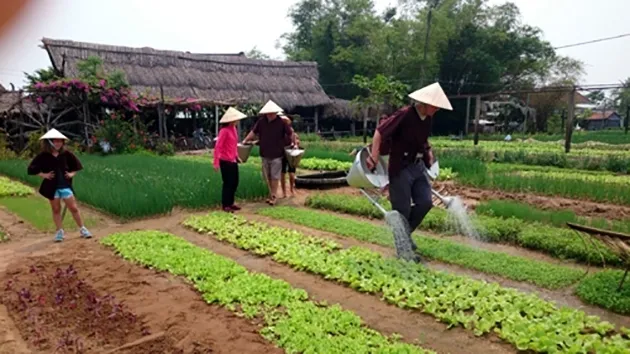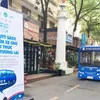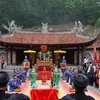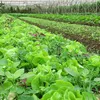Developing tourism based on agricultural advantages

As a country where more than 70% of the population live in rural areas, and a long history of eco-agricultural production with traditional culture, Vietnam has a great advantage for the development of agricultural tourism. The agricultural potential associated with rice fields, fruit gardens, traditional villages, and farms across the country is the premise to promote tourism. On the other hand, the development of tourism based on agricultural resources also increases the value of agricultural products, contributing to financial security for farmers, as well as preserving and promoting the natural values and rural traditional culture.
According to Doctor Ngo Kieu Oanh, Director of Ba Vi Dong que (Countryside) Farm, the number of tourists interested in agricultural tourism will increase because of increasing urbanisation, with rural spaces holding a special charm for visitors of all ages. Over time, in many localities, organisations and individuals have started to invest and exploit agricultural tourism. A number of typical tours have become attractive destinations, such as basking in the picturesque beauty of ripening rice fields in the ancient village of Duong Lam (Hanoi), visiting the village model of Yen Duc (Quang Ninh), visiting Dong Ho folk villages (Bac Ninh), Moc Chau Farm (Son La), Tra Que Vegetable Village (Hoi An, Quang Nam), or embarking on tours of gardens and floating markets in the Mekong Delta.
However, there aren’t many areas currently able to exploit agricultural tourism professionally in our country. According to Nguyen Quy Phuong, head of the Travel Department under the Vietnam National Administration of Tourism (VNAT), most of the agricultural tourism activities are spontaneous and monotonous, with unattractive tourism products. Most of the products have not taken full advantage of methods to attract customers. Farmers do not have sufficient skills for tourism. In addition, the infrastructure and facilities at many agricultural tourism sites have not been fully developed. The connection between destination and travel business remains limited.
These are the challenges that agricultural tourism needs to overcome if this kind of experience is to become a "golden egg" for tourism and agriculture. At the conference "Orientation of agricultural tourism development from the product and market perspective" co-organised by the VNAT and the Rural Area Today Newspaper held at the end of March this year, many experts offered suggestions to develop agricultural tourism. According to the Director General of VNAT Nguyen Van Tuan, tourism and agriculture need to cooperate more closely to help tourism exploit the different and outstanding values of agriculture, to create unique and attractive agricultural tourism products. Under the pressure of urbanization, environmental pollution, and climate change, the development of agricultural products on the basis of developing clean agriculture, organic farming, and high-tech agriculture should be identified as the main direction of progress. In order to avoid monotonous products, localities should focus on products which exploit their local characteristics and traditional cultural factors.
According to the leaders of the VNAT, in terms of policy, the tourism and agriculture sectors should cooperate to build a national programme on agricultural tourism development in association with new rural developments. In particular, it is necessary to support access to capital, technology, infrastructure investment, and training human resources, while developing and issuing standards and ratings for quality products.
In addition, it is important to ensure close connections between the relevant components. Representatives of Fiditour Company affirmed that it is necessary to enhance cooperation between the four parties, including VNAT, MARD, travel agencies, and service providers. In particular, management agencies should set up a task force to support and advise farmers on product development orientation, consumption trends, and skills training. In addition to traditional sales channels, mass media and social media are also effective channels for visitor attraction.
These are solutions that need to be synchronized in a long-term roadmap based on strategic planning that will create a strong motive for Vietnam's agricultural tourism to make breakthroughs.





